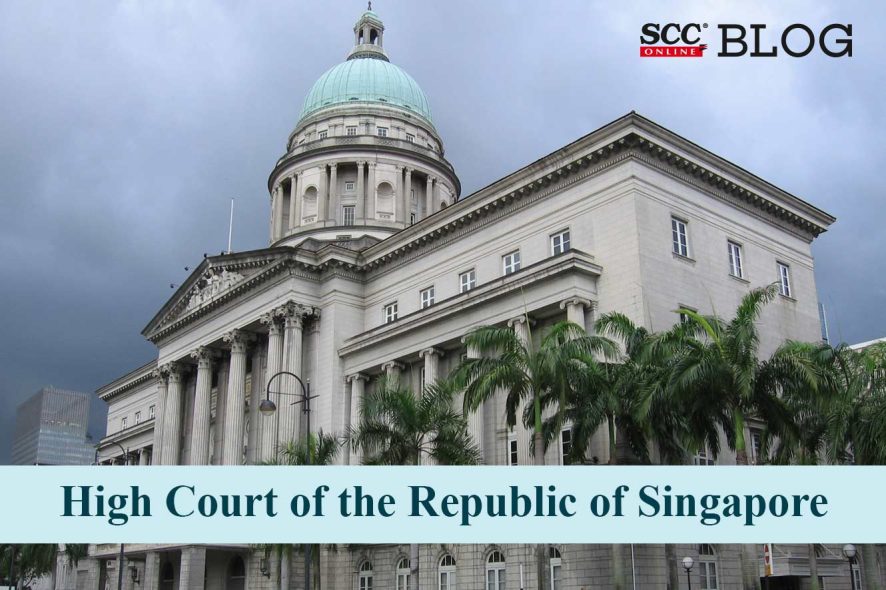High Court of the Republic of Singapore | The bench comprising of Belinda Ang Saw Ean*, Woo Bih Li and Quentin Loh, JAD held that advance commission paid in relation to the averred transaction is a part of the losses suffered due to fraud carried out in that particular transaction. The person who paid such advance commission held liable to pay the entire amount of commission paid for the realisation of the transaction in case of it is called off.
FACTUAL MATRIX
The appellant in the case Mr. Maroju arranged for an investment in the Respondent company EMPL which is a part of the “Lotus” group of companies from Raffles Asset Management (S) Pte Ltd (RAM) for payments totaling US$ 700,000. The appellant was paid US$ 100,000 as personal commission because the investment was considered “as good as secured”. Due to delay in the providing the finances the Respondent informed the appellant to cancel the financial transaction and refund the margin money paid, where they came to know that the margin money was transferred to some third party without the knowledge of the respondent and the investment was to be done by an entity other than Raffles Asset Management (S) Pte Ltd. The Respondent in the case sued the appellant, AKS, RAM and Mr. Kamil, the Director of RAM and a 20% Shareholder in AKS, but the action RAM was stayed because of arbitration clause in the Term Sheet.
APPELLANT’s CONTENTION
The appellant in the case contended that there was no defrauding of the Respondent and the margin money was lost because AKS was defrauded as per the evidence. The appellant also pointed out at the “macro terms” which had put no restraints on RAM regarding the Margin Money. It was also contended that the transfer of Margin money by AKS does not amounts to fraud.
The appellant raised an objection regarding the US$ 100,000 paid to him being called personal commission as the amount as per him was merely a remuneration for his time and efforts and consequently the respondent was estopped from recovering that amount from him. He also denied his role in the conspiracy. The appellant also challenged the findings of the judge that margin money was held by KS on trust as there was no mention of it on either the Term Sheet or the Macro Terms. The appellant denied any evidence of his involvement in the decision of AKS to transfer the Margin money to any third party.
COURT’s OPINION
The Court while agreeing to the findings of the Judge regarding the fraud committed on the respondent EMPL with regard to the margin money and due diligence fee stated that the purpose of the margin money was not disputed and the deployment of the margin money was inconsistent with the reason for which it was paid by the respondent as it was merely put as a deposit for the averred transaction. The respondent was not party to any other contracts entered into by the other parties.
The Court while relying on Wei Ho-Hung v. Lyu Jun, [2022] SGHC(A) 30 at [35]-[52] stated that the specific purpose of the payment of the Margin money was never under dispute and the term sheet was also clear that “the margin money was to be used to set off the eventual repayments due from EMPL”.
The Court termed the Macro Terms as irrelevant as they were irrelevant since the transactions were to be governed by the term sheet and held the decision of the Judge to not consider them to be correct. The court also stated that the Macro Terms were superseded by the Term Sheet in terms of the chronology. There was nothing in the Term Sheet to make the respondent aware of any other use of the Margin Money so paid than what was they purported.
While relying on the e-mails exchanged between the appellant and the agent of AKS, the Court ruled that the appellant was aware of the Clear point Contract and SLO Contract and the emails were exchanged in the proximity of the respondent asking for the promised fundings. This, as per the Court, pointed at the knowledge of the appellant with regard to the Margin Money being transferred to a third party and is not being retained by AKS as independent custodian. The Court observed that the Judge was right in ruling that “Mr Maroju was the man at the heart of the fraud is not plainly wrong in the light of the evidence”.
The Court also rejected the claim of the appellant that he had no control over the Margin money as he was sufficiently aware and acted in concert. The Court relied upon Ivey v. Genting Casinos (UK) Ltd., [2018] AC 391 while ruling that appellant can be found to have acted dishonestly.
The Court observed that the Judge was correct in the finding that the amount of US$ 100,000 had been paid as commission to Mr Maroju for the purported financing transaction as the appellant failed to establish the connection between his travel expenses and the amount so paid. The argument regarding the estoppel from seeking a return of the US$ 100,000 was considered to be devoid of any merit. The appeal was dismissed with costs in favour of the respondent.
[Gangadhara Brhmendra Srikanth Maroju v. Epoch Minerals Pte Ltd, [2022] SGHC(A) 35, decided on 12-10-2022]
Advocates who appeared in this case:
Chong Chi Chuin Christopher and Josh Samuel Tan Wensu (Drew & Napier LLC), Counsel for the Appellant;
Jeremy Gan Eng Tong, Tan Eu Shan Kevin and Liew Min Yi, Glenna (Rajah & Tann Singapore LLP), Counsel for the Respondent.
*Ritu Singh, Editorial Assistant has put this report together.







